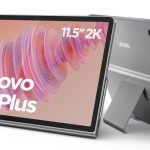Norwest Venture Partners, the now 60-year-old venture and growth equity firm backed entirely by the banking giant Wells Fargo, today rolled out its sixteenth fund, a $3 billion vehicle and its biggest to date.
It’s easy to shrug off the development, but this new pool brings the assets Norwest has raised altogether across the decades to $12.5 billion. Put another way, despite that gigantic fund announcements have become routine, this one is kind of a big deal and another indicator that this market is a very different one from even five years ago.
Certainly, one can see why, in a go-go environment, Wells might agree to such a commitment. For one thing, on the growth equity side, it’s not possible to compete anymore unless you have a ginormous money cannon. Consider that Tiger Global Management alone held a first close of $8.8 billion on its biggest fund ever back in October, according to Bloomberg. (As a reminder, it closed its previous fund with $6.7 billion just six months ago.) To win deals, you need to be able to elbow out at least some of the other multibillion-dollar funds that are also writing checks right now.
Norwest’s team also has a lot of hits about which to boast. While it was busy deploying its last fund, a $2 billion pool that it closed in 2019 and used to fund about 60 companies — almost 30 of Norwest’s earlier bets have “exited” in some fashion over the last couple of years.
The security outfit Shape Security, for example, sold to the application delivery company F5 for $1 billion in late 2019 after raising $183 million in funding, per Crunchbase data. Aporeto, a machine identity-based micro-segmentation company, sold to Palo Alto Networks for $150 million in cash in 2019 after raising around $35 million from investors, according to Crunchbase. A third portfolio company, a Canadian developer of risk and compliance software called Galvanize, meanwhile sold to corporate governance software maker Diligent for a reported $1 billion. Galvanize had raised around $50 million in funding led by Norwest.
A number of Norwest’s consumer-facing investments also hit the public market. Two of these went out via SPAC: the real estate company Opendoor, and the digital mental health company Talkspace. A third portfolio company, Udemy, began trading publicly in October after staging a traditional IPO. (Its shares are trading down by roughly one-third of their offering price as of this writing.)
Norwest currently operates in the Bay Area but it also has offices in Tel Aviv, Israel, and in India, so it has extensive geographic reach.
The outfit also invests in a wide range of companies. Some of these are life sciences outfits. Some are direct-to-consumer retail plays. Others are fintech startups like Plaid, whose Series C round Norwest joined in 2018, and the consumer finance startup Dave, which expects to close a merger with a blank-check company shortly and to begin trading publicly in January.
Of this last sector, longtime partner Lisa Wu, who led the Plaid deal, notes that Norwest’s interest ties exclusively to the upside it sees in such companies. Norwest, she makes clear, is not a strategic investor.
“Wells gives us a competitive advantage, but our relationship with Wells is really an arm’s length relationship,” she says. “We have complete investment authority and autonomy over our investment processes.”
One area where Norwest notably hasn’t yet made a deal is in world of crypto. Asked about this, Wu suggests that it’s just a matter of time. “We talk about it every day,” she says. “We believe in the momentum . . . it’s coming [now] in Fund XVI.”
Powered by WPeMatico






